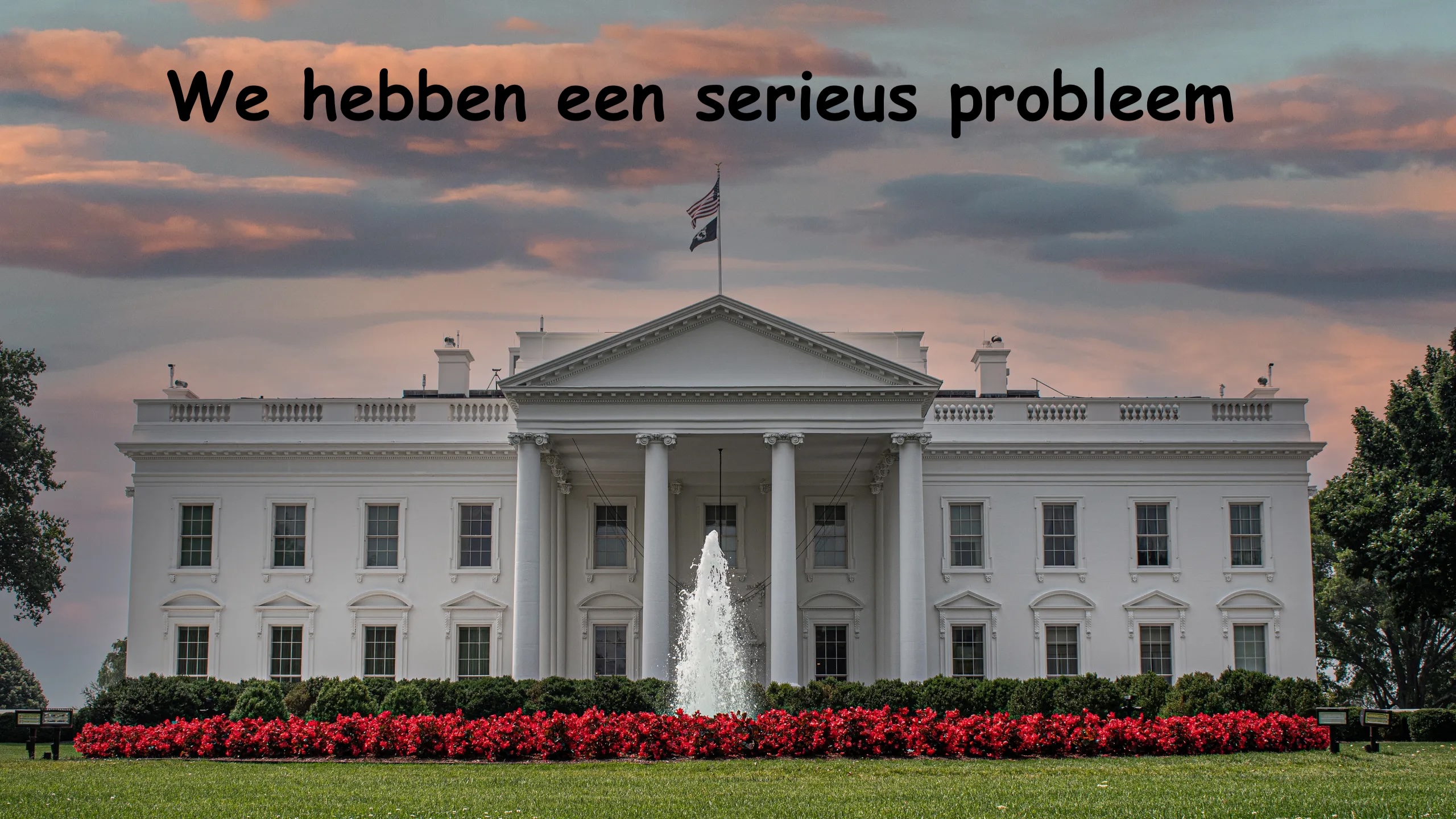Twenty years ago, I had an exceptionally intelligent student who was a passionate defender of and advocate for Saddam Hussein. She wanted me to denounce the American invasion of Iraq, which I was willing to do — though not in precisely the terms that she demanded, because she wanted me to do so on the ground that Saddam Hussein was a generous and beneficent ruler of his people. That is, her denunciation of America as the Bad Guy was inextricably connected with her belief that there simply had to be on the other side a Good Guy. The notion that the American invasion was wrong but also that Saddam Hussein’s tyrannical rule was indefensible — that pair of concepts she could not simultaneously entertain. Because there can’t be any stories with no Good Guys … can there?
This student was not a bad person — she was, indeed, a highly compassionate person, and deeply committed to justice. She was not morally corrupt. But she was, I think, suffering from a disease of the intellect.
What do I mean by that? Everyone’s habitus includes, as part of its basic equipment, a general conceptual frame, a mental model of the world that serves to organize our experience. Within this model we all have what Kenneth Burke called terministic screens, but also conceptual screens which allow us to employ key terms in some contexts while making them unavailable in others. We will not be forbidden to use a word like “compassion” in responding to our Friends, but it will not occur to us to use it when responding to our Enemies. (Paging Carl Schmitt.)
My student’s conceptual screens made certain moral descriptions — for instance, saying that a particular politician or action is “cruel” or “tyrannical” — necessary when describing President Bush but unavailable when describing Saddam Hussein. But I seriously doubt that this distinction ever presented itself to her conscious mind. It worked in the background to determine which thoughts were allowed to rise to conscious awareness and therefore become a matter for debate. To return to a distinction that, drawing on Leszek Kołakowski, I have made before, the elements of our conceptual screens that can rise to consciousness belong to the “technological core” of human experience, while those that remain invisible (repressed, a Freudian would say) belong to the “mythical core.”
I could see these patterns of screening in my student; I cannot see them in myself, even though I know that everything I have said applies to me just as completely as it applies to her, if not more so.
Certain writers are highly concerned with these mental states, and the genre in which they tend to describe them is called the Menippean satire. (That link is to a post of mine on C. S. Lewis as a notable writer in this genre, though this has rarely been recognized.) In his Anatomy of Criticism, Northrop Frye wrote,
The Menippean satire deals less with people as such than with mental attitudes. Pedants, bigots, cranks, parvenus, virtuosi, enthusiasts, rapacious and incompetent professional men of all kinds, are handled in terms of their occupational approach to life as distinct from their social behavior. The Menippean satire thus resembles the confession in its ability to handle abstract ideas and theories, and differs from the novel in its characterization, which is stylized rather than naturalistic, and presents people as mouthpieces of the ideas they represent…. The novelist sees evil and folly as social diseases, but the Menippean satirist sees them as diseases of the intellect. [p. 309]
Thus the title of my post.
I think much of our current political discourse is generated and sustained by such screening, screening that an age of social media makes at once more necessary and more pathological. Also more universally “occupational,” because in some arena of our society — journalism and the academy especially — the deployment of the correct conceptual screens becomes one’s occupational duty, and any failure so to maintain can result in an ostracism that is both social and professional. And that’s how people, and not just fictional characters, become “mouthpieces of the ideas they represent.”
None of this is hard to see in some general and abstract sense, but it’s hard to see clearly. What Lewis calls the “Inner Ring” is largely concerned to enforce the correct conceptual screens, and because those screens don’t rise to conscious awareness, much less open statement, the work of enforcement tends to be indirect and subtle, and perhaps for that very reason irresistible. It’s like being subject to gravity.
In certain cases the stress of maintaining such conceptual screens grows to be too much for a person; the strain of cognitive dissonance becomes disabling. Crises in one’s conceptual screening, as Mikhail Bakhtin wrote in Problems of Dostoevsky’s Poetics, were of particular interest to Dostoevsky:
In the menippea there appears for the first time what might be called moral-psychological experimentation: a representation of the unusual, abnormal moral and psychic states of man — insanity of all sorts (the theme of the maniac), split personality, unrestrained daydreaming, unusual dreams, passions bordering on madness, suicides, and so forth. These phenomena do not function narrowly in the menippea as mere themes, but have a formal generic significance. Dreams, daydreams, insanity destroy the epic and tragic wholeness of a person and his fate: the possibilities of another person and another life are revealed in him, he loses his finalized quality and ceases to mean only one thing; he ceases to coincide with himself. [pp. 116-19]
This deserves at least a post of its own. But in general it’s surprising how powerful people’s conceptual screens are, how impervious to attack. But maybe it shouldn’t be surprising, since those screens are the primary tools that enable us to “mean only one thing” to ourselves; they allow us to coincide with ourselves in ways that soothe and satisfy. The functions of the conceptual screens are at once social and personal.
All this helps to explain why the whole of our public discourse on Israel and Palestine is so fraught: the people participating in it are drawing upon some of their most fundamental conceptual screens, whether those screens involve words like “colonialism” or words like “pogrom.” But this of course also makes rational conversation and debate nearly impossible. The one thing that might help our fraying social fabric is an understanding that, when people are wrong about such matters — and that includes you and me —, the wrongness is typically not an indication of moral corruption but rather the product of a disease of the intellect.
And we all live in a social order whose leading institutions deliberately infect us with those diseases and work hard to create variants that are as infectious as possible. So my curse is straightforwardly upon them.
I don’t want to pretend that I am above the fray here. I have Opinions about the war, pretty strong ones at that, and I have sat on this post for a week or so, hemming and hawing about whether I have an obligation to state my position, given the sheer human gravity of the situation. But while I’m not wholly ignorant, I don’t think that my Opinions are especially well-informed, and if I put them before my readers — well, I feel that that would be presumptuous. (Even though I live in an era in which most people find it disturbing or even perverse if you hold views without proclaiming them.) There are thousands of writers you could read to find stronger and better-informed arguments than any I could make.
But I do think I can recognize and diagnose diseases of the intellect when I see them. That’s maybe the only contribution I can make to this horrifying mess of a situation, and I’m counting on its being more useful if it isn’t accompanied by a statement of position.
I hope this won’t be taken as a plague-on-both-your-houses argument, though I’m sure it will. (I have made such arguments about some things in the past, but I am not making one here.) When you write, as I do above, about the problem with a conceptual screen that requires one purely innocent party and one purely guilty party, you will surely be accused of “false equivalency” or “blaming the victim.” But you don’t have to say that a person, or a nation, or a people is utterly spotless in order to see them as truly victimized. Sometimes a person or a nation or a people is, to borrow King Lear’s phrase, “more sinned against than sinning” without being sinless. And I think that applies no matter what role you assign to which party in the current disaster.
With all that said, here are some concluding thoughts:
- A monolithic focus on assigning blame to one party while completely exonerating the other party is a sign of a conceptual screen working at high intensity.
- Such a monolithic focus on blame-assignation is also incapable of ameliorating suffering or preventing it in the future. (Note the use of the italicized adjective in these two points: the proper assessment of blame is not a useless thing, but it’s never the only thing, and it is rarely the most important thing, for observers to do.)
- If you are consumed with rage at anyone who does not assign blame as you do, that indicates two things: (a) you have a mistaken belief that disagreement with you is a sign of moral corruption, and (b) your conceptual screen is under great stress and is consequently overheating.
- It is more important, even if it’s infinitely harder, for you to discover and comprehend your own conceptual screens that for you to see the screens at work in another’s mind. And it is important not just because it’s good for you to have self-knowledge, but also because our competing conceptual screens are regularly interfering with our ability to develop practices and policies that ameliorate current suffering and prevent future suffering.
- A possible strategy: When you’re talking with someone who says “Party X is wholly at fault here,” simply waive the point. Say: “Fine. I won’t argue. So what do we do now?” Then you might begin to get somewhere — though you’re more likely to discover that your interlocutor’s ideas begin and end with the assigning of blame.


